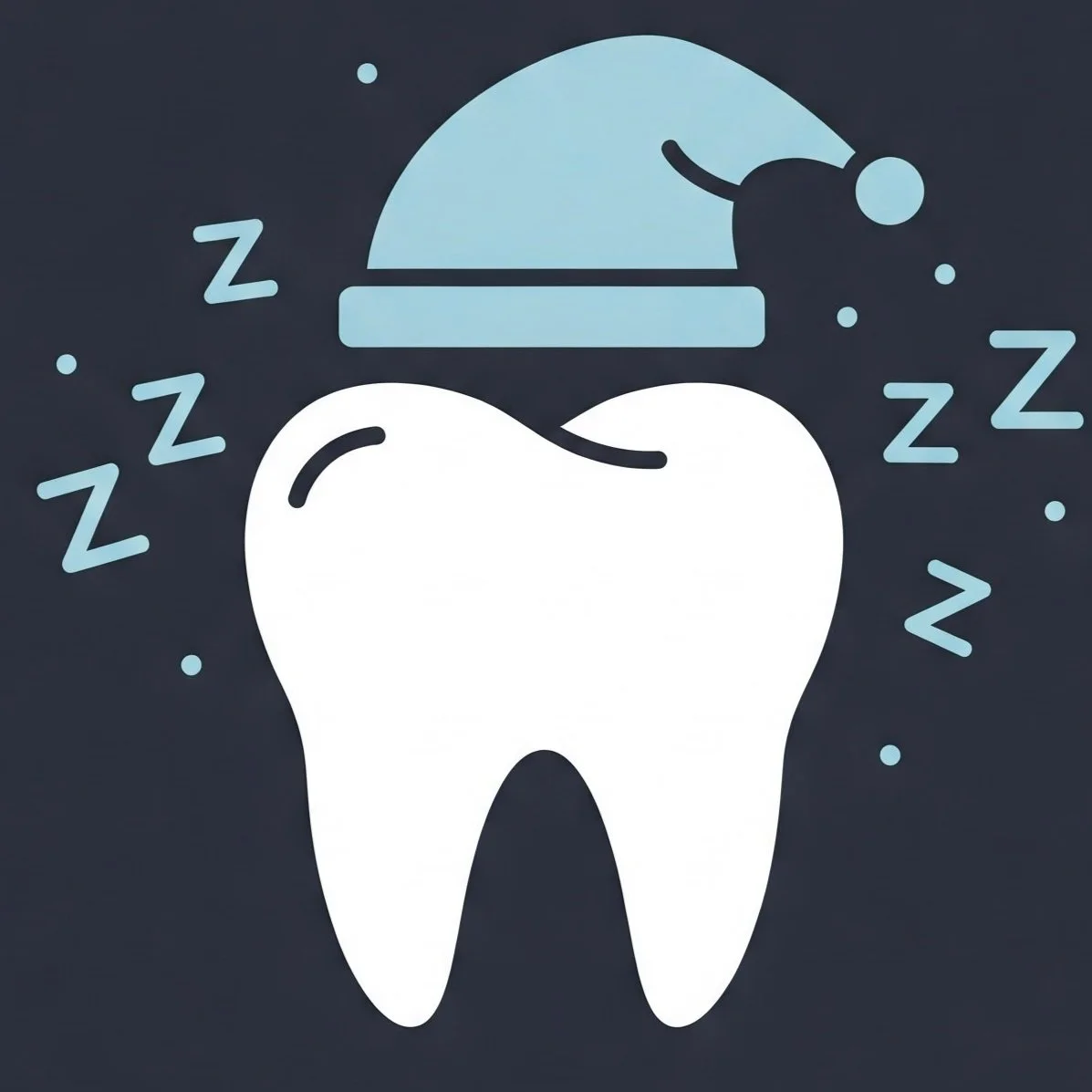Sleep Dentistry
Custom Night Guards (Teeth Grinding Mitigation):
What it is: A custom night guard is a specially made oral appliance that fits over your upper or lower teeth. It's created from an impression of your mouth, ensuring a comfortable and precise fit. The material is typically a hard or semi-hard acrylic. You wear it while you sleep.
Why it's important: Many people unknowingly grind or clench their teeth during sleep, a condition called bruxism. This can be caused by stress, anxiety, a misaligned bite, or sleep disorders. Teeth grinding can lead to various problems, including worn-down teeth, chipped or cracked teeth, jaw pain, headaches, and even temporomandibular joint (TMJ) disorders.
Benefits: A custom night guard acts as a protective barrier between your upper and lower teeth. When you grind or clench, you're grinding against the guard instead of your natural teeth. This helps to:
Protect your teeth: Prevents wear, chipping, and cracking.
Reduce jaw pain and tension: By cushioning the teeth and reducing muscle activity.
Alleviate headaches: Often associated with teeth grinding and jaw clenching.
Improve sleep quality: By reducing discomfort and muscle tension that can disrupt sleep. Because it's custom-made, it's more comfortable and effective than over-the-counter night guards.
Sleep Devices (Snoring and Sleep Apnea Treatment):
What they are: These are also custom-made oral appliances that you wear while you sleep. However, unlike night guards that primarily protect teeth, sleep devices are designed to address breathing issues related to snoring and sleep apnea. There are different types of sleep devices, but they generally work by repositioning your jaw, tongue, or soft palate to keep your airway open during sleep.
Why they're important:
Snoring: While often considered a nuisance, loud snoring can be a sign of restricted airflow and can disrupt your sleep and the sleep of your partner.
Sleep Apnea: This is a more serious condition where your breathing repeatedly stops and starts during sleep. Obstructive sleep apnea (OSA), the most common type, occurs when the soft tissues in the back of your throat relax and block your airway. Sleep apnea can lead to serious health problems, including high blood pressure, heart disease, stroke, and excessive daytime sleepiness.
Benefits: Sleep devices can be an effective treatment option for snoring and mild to moderate obstructive sleep apnea. They work by:
Keeping the airway open: By gently shifting the lower jaw forward, preventing the tongue and soft tissues from collapsing and blocking airflow.
Reducing or eliminating snoring: By opening the airway, the vibrations that cause snoring are minimized or stopped.
Improving sleep quality: By ensuring proper breathing throughout the night, you can experience more restful and restorative sleep.
Reducing the risks associated with sleep apnea: By maintaining airflow, sleep devices can help lower the risk of developing serious health conditions linked to untreated sleep apnea.
It's important to note that if you suspect you have sleep apnea, a proper diagnosis from a medical doctor or sleep specialist is crucial. Dental sleep devices are often used in consultation with medical professionals as part of a comprehensive treatment plan.

